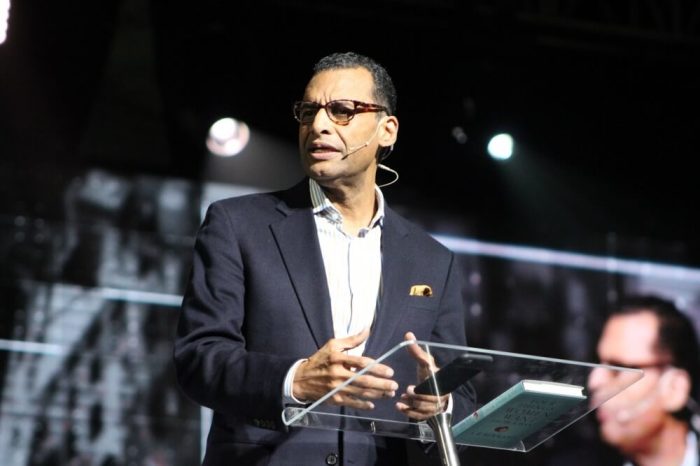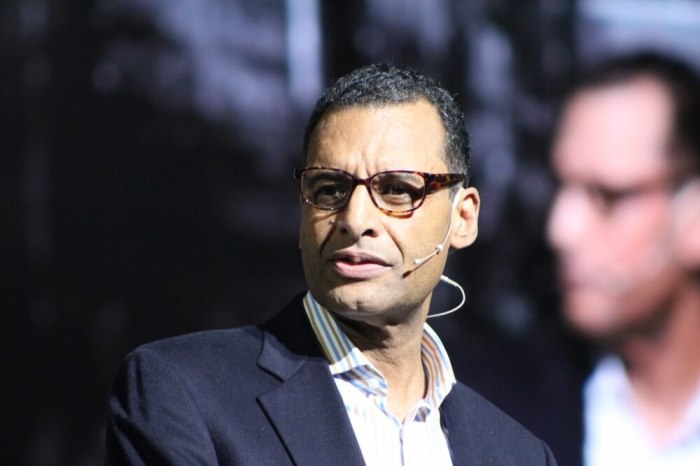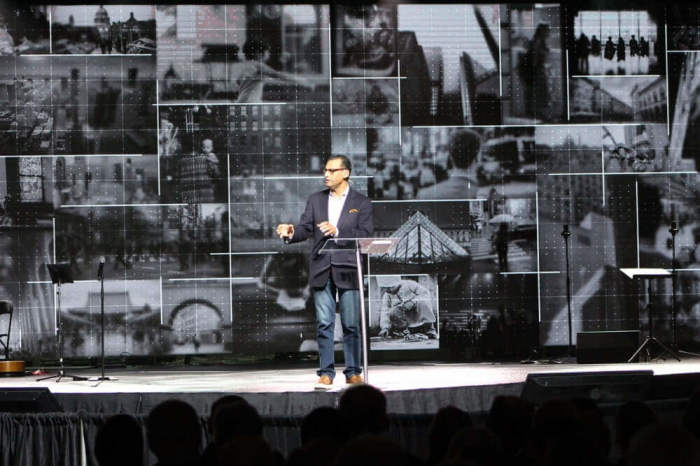Teaching Poor About God's Prosperity and Abundance 'Makes Sense,' Megachurch Pastor AR Bernard Says

NEW YORK — Pastor A.R. Bernard, founder of New York City's largest evangelical congregation, the Christian Cultural Center, says teaching the poor about God's prosperity and abundance "makes a lot of sense."
"I believe, from 38 years of ministry, that ministry is contextual. It depends on the context you're in. So if I'm ministering in a context of those who are poor and struggling in life, I'm going to teach them of God's abundance, I'm going to teach them of God's prosperity in their life, and I'm going to teach them how to discipline their lives and believe God for a better quality of life. This was a part of the promise," Bernard said last Thursday at the Movement Day Global Cities conference held at the Jacob Javits Center.
Bernard's theology should not be confused with the controversial prosperity gospel to which he said a few months ago he doesn't subscribe.
"I do not subscribe to the notion that somehow wealth and spirituality are tied together. Because if that was true, then someone like Donald Trump would be considered very spiritual," Bernard told New York's Power 105.1 morning radio program in May. "That's a falsity and yet there are my colleagues in ministry, especially over the last 45 years ... [who] have pushed this notion that to be wealthy is to be spiritual, they're synonymous. That's not true because it sells a pipe dream to people, most of them struggling to be where that preacher is."
In an address to a global audience representing 95 countries at the closing ceremony of the Movement Day Global Cities conference, Bernard was unapologetic about teaching God's prosperity to the poor in his comments about how the Church needs to contextualize ministry to respond to culture.
"If my context is in a community of those who are wealthy and powerful, I'm going to teach them and preach to them about their responsibility for their brother and being their brother's keeper, for those who are less fortunate, and that makes a lot of sense," he added.
Culture, Bernard said, is "the greatest and most powerful influence and challenge" for the Church in doing ministry. In the last 40 years, he explained, the Church has seen the most rapid change in culture "take place right before our eyes and it is prophetic." This rapid change, he explained, is most evident in cities.
"No matter where we are in the world, the context is changing so rapidly that it's no longer one or the other but is becoming a blended experience," he said of the various contexts in which people live. "Multiculturalism, blended families, multiracial context, multiple ethnicities are now converging."
The New York City preacher whose congregation stands at 37,000, hinged his message on Jesus' Sermon on the Mount in Matthew which he used to remind the audience of the church's role in society — to be salt and light.

"He [Jesus] begins to present in very simple form and language, the role of His people in the world. At that time, He was speaking to the Jewish people, but He was also speaking to the future in the role that the Church and Christianity would have [in] society. Simple terms — salt and light," said Bernard. "He said you are the salt of the earth, relating to the soil, and he said you are the light of the world, cosmos, relating to the social order — socially, politically economically, educationally in all aspects on social institutions."
Bernard charged that in order to be effective and relevant, the Church needs to be aware of the culture in which it operates.
"Our empowerment by the Holy Spirit enables to discern the day, the time in which we live, and the movement of culture and the rapid changes that we see happening before us because these things impact the very people and societies we have been called to reach. And it's important that we live and walk and do ministry with a prophetic awareness of what's happening before our eyes," said Bernard.
He then described the reaction of society and the Church to the rapid cultural changes as "future shock," a term coined by futurist Alvin Toffler who wrote a book of the same name. Toffler died in his sleep at the age of 87, earlier this summer.
"In 1970, there was a futurist by the name of Toffler who looked at what it means when societies begin to experience rapid change, faster than we are able to wrap our head around. He talked about our movement from an agrarian society to a post-industrial society that he called super industrial society. Movement from manufacturing to an information world and an information society where information is driving and shaping what we do and how we do it," Bernard said.
"Toffler said, very prophetically in his analysis of what was going to happen in the future of American societies, that there would be a disorientation and anxiety that would characterize people's response to what they see happening in front of their eyes, he called it 'future shock,' a term that he also coined and [it is] continued to be used to this day. It essentially is fear of the future," he explained.

"Jesus put it this way, no matter where you apply this text, if you're a dispensationalist, he said, 'men's hearts failing them for fear, because of the things that they see coming upon the Earth,'" Bernard added.
While the shifting culture can create an identity crisis in the church to the point where secularists will pronounce it irrelevant, Bernard noted that because people are "religious by nature" they will always yearn for God.
"In a post-industrial society, terms like modernity and post-modernity, post-Christian era, all of these things are creeping into our language, and the secularist would like to say that people are leaving church and the millennials are leaving church, and religion is becoming less relevant in the society and they make the same mistake that the Soviet Union made because it failed to understand one basic thing involved in any societal development, and that is human nature," he said.
"No matter how much it looks like — and we hear language from those whose who would like to remove God from the public square, from education — the reality is that people in the image of God are designed in such a way that we are religious by nature.
"We contemplate and reflect on concerns such as the meaning, value and purpose of life, and secularity can't answer that question efficiently or effectively. They can hypothesize, but the hearer is still left empty, unfulfilled and wondering about those questions. So no matter how rapidly society changes the hunger for meaning, the hunger for value, the hunger that is in every human heart for a sense of purpose can only be satisfied through the agency that God established over the Earth, and it is the Church and the ministries that support the Church," Bernard continued.
The Church, he said, must maintain its role as salt and light in the world.
"As salt, we have the responsibility to preserve the moral and spiritual integrity of society in the face of the natural process toward decay. As salt, we stir the public interest in the spiritual and moral trends and patterns of matters that lead to the decline of society. As salt we stimulate thought and conversation on the existing values and philosophies that drive popular culture and the problems with those philosophies if we allow them to play out over the next generation. As salt, we challenge the status quo on issues of justice and mercy. And if we fail to do these things, we become antiquated and irrelevant to the very world we have been called to serve," he warned.
"The city, a place of gathering, a place where philosophies and values are shaped and not just presented but imposed on us, in a very powerful way through social media and marketing. Boy do we got our work cut out for us. But we've gotta look beyond those realities, and look at the reality of human nature. People, the worse it gets, the more anxiety there is, the more rootlessness there is, the more disorientation there is, the more people need God. And as long as they need God. We have a lot of work to do," Bernard added.




























